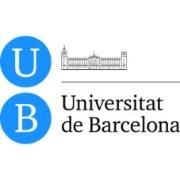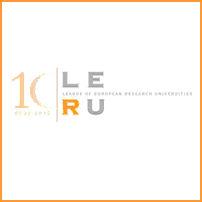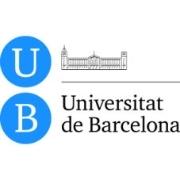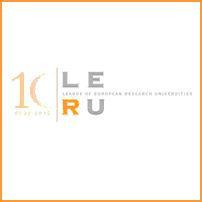The Bioethics and Law Obs.
Master in Bioethics and Law
UNESCO Chair in Bioethics
Contact
- Bioethics and Law Observatory
- UNESCO Chair in Bioethics
- University of Barcelona
- Faculty of Law
- Ave. Diagonal, 684
- 08034 Barcelona
- (+34) 93 403 45 46
- obd.ub@ub.edu
- Master in Bioethics and Law
- (+34) 93 403 45 46
- master.bd@ub.edu
RSS del Observatori de Bioètica i Dret UB
-
Equity and access to health resources, will be the subject of debate at the VI Seminar of the UNESCO Chair in Bioethics of the UB
 Under the title 'Equity and Access to Health Resources’, the VI International Seminar of the UNESCO Chair in Bioethics of the University of Barcelona (UB)- Bioethics and Law Observatory (OBD-UB) will be held this 31 January at the Antoni Caparrós Hall at the Barcelona Science Park. The purpose of this sixth edition of the forum is to create a space for debate and reflection on the main ethical dilemmas posed presently by the management of public health from a point of view of distributive justice and the right of all citizens to healthcare in effective equality conditions.
Under the title 'Equity and Access to Health Resources’, the VI International Seminar of the UNESCO Chair in Bioethics of the University of Barcelona (UB)- Bioethics and Law Observatory (OBD-UB) will be held this 31 January at the Antoni Caparrós Hall at the Barcelona Science Park. The purpose of this sixth edition of the forum is to create a space for debate and reflection on the main ethical dilemmas posed presently by the management of public health from a point of view of distributive justice and the right of all citizens to healthcare in effective equality conditions.The opening and presentation of the event will be given by the Rector of the University of Barcelona, Dídac Ramirez, Maria Casado, holder of the UNESCO Chair in Bioethics of the University of Barcelona and director of the Bioethics and Law Observatory, located at the Barcelona Science Park.
The program of lectures will be structured around three roundtables, which will feature the presence of leading national and international experts from the academic, legal, and healthcare institutions. The first lecture, led by Albert Royes i Qui , member of the Bioethics and Law Observatory, will focus on the debate on equity from the perspective of the management of public health, primary care, prescription drugs and attention to sexual and reproductive health. The second lecture will be conducted by Ricardo Garcia Manrique, Professor of Philosophy of Law at the UB 'and will address the issue of distributive justice and allocation of health resources. The third lecture will be presented by Anna Badia I Martin, Professor of International Public Law at the University of Barcelona and member of the Bioethics and Law Observatory who will lecture about equity from a Latin American perspective.
During the closing ceremony, there will be a presentation of the initiative “Freedom to Choose”, promoted by the Bioethics and Law Observatory. The said initiative is aimed at promoting the dialog between the university and society and to guide the public in making informed decisions on issues that concern the beginning and end of life, such as voluntary termination of pregnancy, the living will, or research on remnants embryos from reproduction processes for obtaining stem cells.
- L’equitat i l’accés als recursos sanitaris, a debat en el VI Seminari de la Càtedra UNESCO de Bioètica de la UB - UB
-
LERU publishes an Agenda for Ethics’ Research in Horizon 2020
L'Observatori de Bioètica i Dret ha participat aportant l'exemple del projecte Projecte ALFA d'integració de la Bioètica en diferents graus, dirigit per la Dra. María Casado, en el grup LERU Horizon 2020: integrating ethics from the start, Agenda for Ethics’ Research in Horizon 2020.
LERU publishes an Agenda for Ethics’ Research in Horizon 2020
- Uruguay es "vulnerable" frente a las multinacionales por la ausencia de la Comisión Nacional de Ética en Investigación
-
UB, the single Spanish university on Nature Publishing Group international ranking
 UB is the single Spanish university which appears among the 200 best worldwide universities on Global Top 200, published by Nature Publishing Group, one of the most influential journals on international academic publications. This global classification of research institutions puts the UB on 148th place. The ranking is led by Harvard University (United States); CSIC and the Institute of Photonic Sciences also appear on it, on 60th and 167th places, respectively.
UB is the single Spanish university which appears among the 200 best worldwide universities on Global Top 200, published by Nature Publishing Group, one of the most influential journals on international academic publications. This global classification of research institutions puts the UB on 148th place. The ranking is led by Harvard University (United States); CSIC and the Institute of Photonic Sciences also appear on it, on 60th and 167th places, respectively.
According to Global Top 200, UB is among the 120 best worldwide universities (and among the 40 best European ones) on the classification by universities. The ranking is based on the Nature Publishing Index (NPI), which tracks the number and affiliations of primary research articles published in eighteen Nature-branded journals in 2012 in the following subject areas: Chemistry, Life Sciences, Earth and Environmental Sciences and Physics.
The results by areas show that Spain is one of the countries on the Top 10 in Physics. Regarding journals, Spain is on the Top 10 of contributors to Nature Communications, Nature Genetics, Nature Nanotechnology, Nature Materials, Nature Photonics, Nature Medicine, Nature Physics and Nature Structural & Molecular Biology. Globally, Spain is on the 11th place on the Global Top 100, which shows the best countries according to the Nature Publishing Index.The classification confirms United States' leadership. It also highlights the rapid rise of the People's Republic of China, which has nine institutions in the Top 200. Other well internationally positioned countries are Ireland, Brazil, Saudi Arabia and Kenya.Nature Publishing Group is a division of Macmillan Publishers addressed to academic, professional, scientific and medical communities. The journal Nature, its most prestigious publication, was first published in 1869 in the United Kingdom, and in 2007 it was honoured with the Prince of Asturias Award for Communication and Humanities together with the journal Science.More information on the following links:· Global Top 200 http://www.natureasia.com/en/publishing-index/pdf/NPI2012_Global.pdf· Nature Publishing Index http://www.natureasia.com/en/publishing-index/global/· Papers published on Nature-branded journals in 2012 signed by UB professors http://www.natureasia.com/en/publishingindex/global/articlelist/Spain/University+of+Barcelona -
UB researchers write a LERU advice paper on the role of social sciences and humanities in Horizon 2020
 The League of European Research Universities (LERU) has just published The future of the social sciences and humanities in Europe: Collected LERU papers on the SSH research agenda, a document that includes seven notes on the role that social sciences and humanities play in the seven challenges identified by the European Commission as those to be pursued in Horizon 2020 research programme. The note entitled Smart, green and integrated transport is signed by UB professors Daniel Albalate, Germà Bel, Xavier Fageda and Jordi Rosell. The short paper, the first one led by UB researchers, quotes Barcelona's port and airport as a good example of exploiting the complementarities between air and maritime transportation.
The League of European Research Universities (LERU) has just published The future of the social sciences and humanities in Europe: Collected LERU papers on the SSH research agenda, a document that includes seven notes on the role that social sciences and humanities play in the seven challenges identified by the European Commission as those to be pursued in Horizon 2020 research programme. The note entitled Smart, green and integrated transport is signed by UB professors Daniel Albalate, Germà Bel, Xavier Fageda and Jordi Rosell. The short paper, the first one led by UB researchers, quotes Barcelona's port and airport as a good example of exploiting the complementarities between air and maritime transportation.The future of the social sciences and humanities in Europe: Collected LERU papers on the SSH research agenda underlines that research on social sciences and humanities is of vital importance to the future of Europe. The document proposes some actions to ensure a suitable research on social sciences and humanities in Horizon 2020.
Particularly, the note on transport signed by UB researchers affirms that there is clearly a great need for the implementation of insights from psychology and the social sciences to analyse population's dietary habits, opinions and mobility routines. It reflects upon questions such as how political or psychological factors intervene in some decisions, for instance the application of congestion charges or the contribution of public transportation to the economic development of territories. In this sense, the exploitation of complementarities is defended against the competition between transport modes. The case of Barcelona illustrates the advantages of exploiting the complementarities between air and maritime transportation. The port of Barcelona is currently one of the ports with the largest amount of cruise passengers in the world. It partly owes its success to the increasing number of direct air links that the airport of Barcelona offers to US cities.Societal challenges of Horizon 2020The future of the social sciences and humanities in Europe: Collected LERU papers on the SSH research agenda includes seven notes, one on each Horizon 2020 societal challenges to which economic resources must be allocated: health, demographic change and wellbeing; secure societies; inclusive and innovative societies; climate action, resource efficiency and raw materials; food security, sustainable agriculture, marine and maritime research and bio-economy; secure, clean and efficient energy; and smart, green and integrated transport.These notes complement the article published on 2012 about the role that social sciences and humanities play in Horizon 2020. UB collaboration in the document was represented by: Elisenda Paluzie, Dean of the Faculty of Economics and Business; Xavier Mangado, Secretary of the Faculty of Geography and History; Josep M. Romero, Head of Studies at the Faculty of Philosophy, and the Office of the Vice-Rector for Research of the UB.The document published by LERU also includes an annex to the Agenda for ethics research in Horizon 2020. It stresses ethics as a crucial factor in research’s success and high quality. It is important to remark that UB takes an active part in LERU's Research Integrity Expert Group. Dr Itziar de Lecuona, from the Department of Public Health and researcher at the Bioethics and Law Observatory of the UB, is one of its members.Moreover, the Agenda for ethics research in Horizon 2020 takes the project Research Network for Establishing Programmes for Joint Teaching of Bioethics, led by the UB professor María Casado and funded by the programme ALFA, as an example of integrating ethics from the start. Its objective is to develop a common programme to incorporate ethics in the curriculum of all the disciplines of the universities participating in the programme.Finally, LERU's document includes the text A LERU flagship initiative. Its aim is to increase the effectiveness of research and innovation to better understand the place of Europe in the world as well as the legal, economic, political, social, linguistic and cultural fabric of Europe.The League of European Research Universities (LERU)LERU is an association of twenty-one leading research intensive universities that share the values of highly-quality teaching within an environment of internationally competitive research. The purpose of the League is to advocate these values, to influence policy in Europe and to develop best practice through mutual exchange of experience. LERU regularly publishes a variety of papers and reports which make high-level policy statements, provide in-depth analyses and make concrete recommendations for policymakers, universities, researchers and other stakeholders.LERU universities are: University of Amsterdam, University of Barcelona, University of Cambridge, University of Edinburgh, University ofFreiburg, Université de Genève, Universität Heidelberg, University of Helsinki, Universiteit Leiden, KU Leuven, ImperialCollege London, University College London, Lund University, University of Milan, Ludwig-Maximilians-UniversitätMünchen, University of Oxford, Pierre & Marie Curie University, Université Paris-Sud, University of Strasbourg, Utrecht University, and University of Zurich.http://www.ub.edu/web/ub/en/menu_eines/noticies/2013/10/004.html
-
UB ranks among the top 100 worldwide universities in scientific papers performance, according to NTU Ranking
 UB is the only Spanish university included among the best 100 worldwide universities, according to the Performance Ranking of Scientific Papers for World Universities 2013, which evaluates and ranks productivity and the impact of publications of top 500 worldwide universities for the period 2002-2012. UB has advanced to position 89 as it was listed as 115th in the previous edition of the ranking.The new NTU Ranking is headed by Harvard University (Unites States), Johns Hopkins University (United States), Stanford University (United States), the University of Washington-Seattle (United States) and the University of California-Los Angeles (United States). The European institution first listed on the ranking is the University of Oxford, located at position 9.The ranking, published by the National Taiwan University Ranking (NTU Ranking), analyses eight bibliometric indicators —based on the Essential Science Indicators (ESI) of the Institute of Scientific Information (ISI) and the Web of Science (WOS)— which evaluate research productivity, impact and excellence.In 2013 edition, UB advances positions in five out of six fields analysed by the ranking: Agriculture, Clinical Medicine, Engineering, Computing and Technology, Life Sciences, and Social Sciences. To be exact, UB is on Top 100 in Agriculture, Clinical Medicine, Life Sciences and Natural Sciences, and it is the top Spanish university in Clinical Medicine, Life Sciences and Natural Sciences.In the classification by subject, UB also advances positions in Agriculture, Plant and Animal Science, Chemical Engineering, Materials Science, Pharmacology and Toxicology, Chemistry and Mathematics. The subjects in which UB is leader in Spain are Agriculture, Materials Sciences, Pharmacology and Toxicology and Chemistry.It is important to remember that UB is the only Spanish university on world's Top 100 —it is listed as 90th— in the subject Clinical, Pre-Clinical and Health on the latest edition of the ranking developed by the English journal The Times Higher Education (THE).For further information please visit this link.
UB is the only Spanish university included among the best 100 worldwide universities, according to the Performance Ranking of Scientific Papers for World Universities 2013, which evaluates and ranks productivity and the impact of publications of top 500 worldwide universities for the period 2002-2012. UB has advanced to position 89 as it was listed as 115th in the previous edition of the ranking.The new NTU Ranking is headed by Harvard University (Unites States), Johns Hopkins University (United States), Stanford University (United States), the University of Washington-Seattle (United States) and the University of California-Los Angeles (United States). The European institution first listed on the ranking is the University of Oxford, located at position 9.The ranking, published by the National Taiwan University Ranking (NTU Ranking), analyses eight bibliometric indicators —based on the Essential Science Indicators (ESI) of the Institute of Scientific Information (ISI) and the Web of Science (WOS)— which evaluate research productivity, impact and excellence.In 2013 edition, UB advances positions in five out of six fields analysed by the ranking: Agriculture, Clinical Medicine, Engineering, Computing and Technology, Life Sciences, and Social Sciences. To be exact, UB is on Top 100 in Agriculture, Clinical Medicine, Life Sciences and Natural Sciences, and it is the top Spanish university in Clinical Medicine, Life Sciences and Natural Sciences.In the classification by subject, UB also advances positions in Agriculture, Plant and Animal Science, Chemical Engineering, Materials Science, Pharmacology and Toxicology, Chemistry and Mathematics. The subjects in which UB is leader in Spain are Agriculture, Materials Sciences, Pharmacology and Toxicology and Chemistry.It is important to remember that UB is the only Spanish university on world's Top 100 —it is listed as 90th— in the subject Clinical, Pre-Clinical and Health on the latest edition of the ranking developed by the English journal The Times Higher Education (THE).For further information please visit this link. -
UNESCO/Keizo Obuchi Research Fellowships Programme: UNESCO calls to Young Researchers to apply
For the thirteenth consecutive year, the Japan Funds-in-Trust Project offers 20 research fellowships focuses on post-graduate research activities in the following four areas: environment (with particular emphasis on water sciences); intercultural dialogue, information and communication technologies; and peaceful conflict resolution.
-
OBD integrating ethics from the start
 At the initiative of Franck Meijboom and Marcus Düwell, both ethics researchers at Utrecht University, LERU ethics’ scientists met last autumn to discuss the position and role of ethics in Horizon 2020. They agreed to write a statement and annex on the ‘Agenda for Ethics’ Research in H2020’. These documents elaborate further on the LERU advice paper ‘Social Sciences and Humanities: essential fields for European research and in Horizon 2020’, published in June 2012. In the paper ethics is presented as an essential discipline to deal with the normative dimensions of the themes and topics mentioned in Horizon 2020. The claim that ethics is essential to foster responsible research and innovation is further elaborated in this statement and ideas are presented on how this can be operationalized. In the Annex, specific ethical questions related to the themes of Horizon 2020 are presented with best practice examples in ethics research with a multidisciplinary character.
At the initiative of Franck Meijboom and Marcus Düwell, both ethics researchers at Utrecht University, LERU ethics’ scientists met last autumn to discuss the position and role of ethics in Horizon 2020. They agreed to write a statement and annex on the ‘Agenda for Ethics’ Research in H2020’. These documents elaborate further on the LERU advice paper ‘Social Sciences and Humanities: essential fields for European research and in Horizon 2020’, published in June 2012. In the paper ethics is presented as an essential discipline to deal with the normative dimensions of the themes and topics mentioned in Horizon 2020. The claim that ethics is essential to foster responsible research and innovation is further elaborated in this statement and ideas are presented on how this can be operationalized. In the Annex, specific ethical questions related to the themes of Horizon 2020 are presented with best practice examples in ethics research with a multidisciplinary character.Please click here to download or view the statement or annex.




